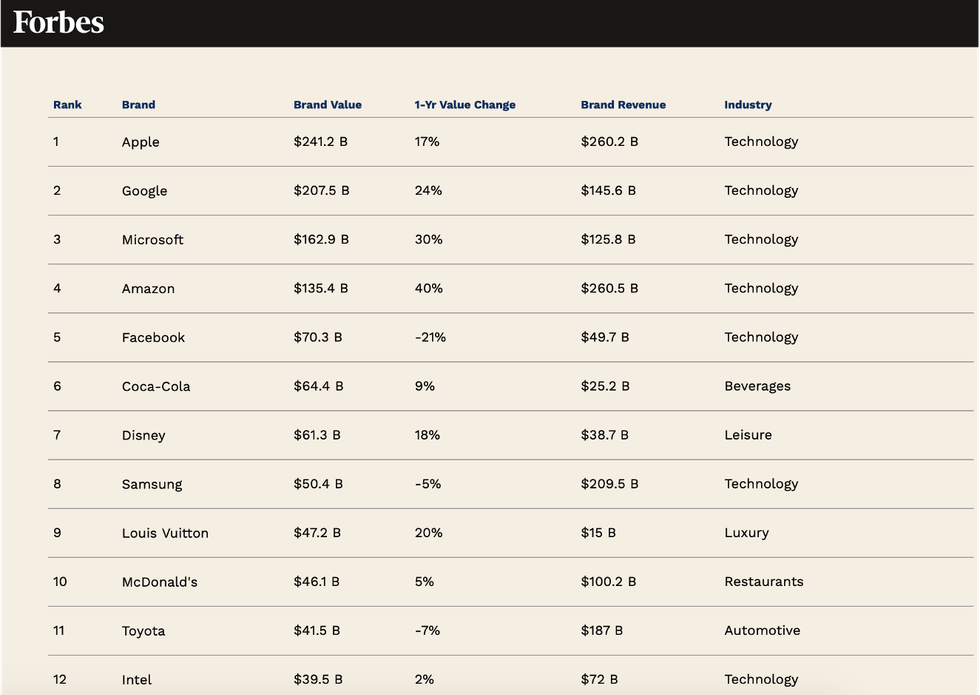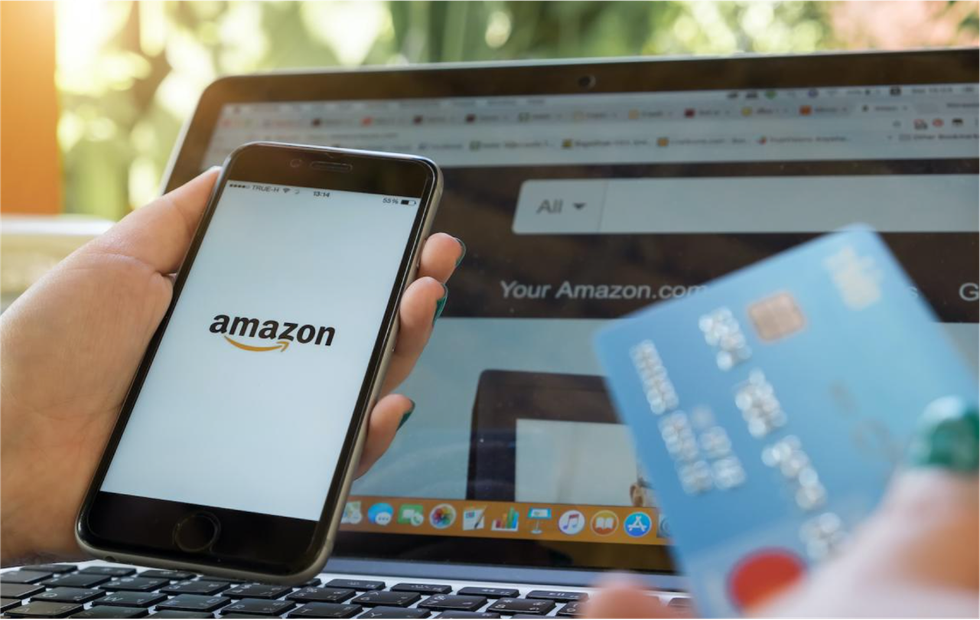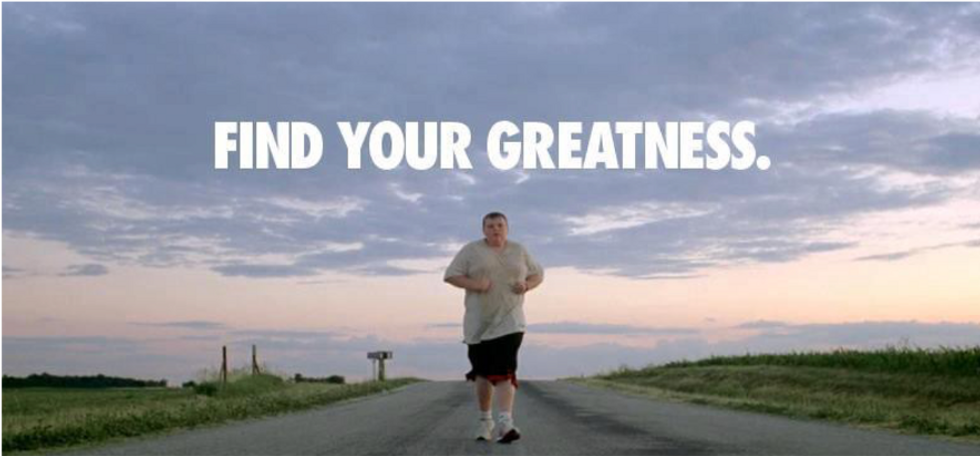If there is one thing I've learned from my years of helping brands tell their story it's that successful businesses struggle to survive if they don't have a strong branding strategy. Building a strong branding strategy takes time, resources, and commitment. Many executives can get stuck completing the branding strategy. This article will answer the question of what branding is and how it can help your business.
WHAT IS BRANDING?

What is a brand?
A brand is a thing (noun). The Dictionary of Brand defines a brand as "a person's perception of a product, service, experience, or organization." It covers everything you do or say as an organization, even if your business is just you. Think about this. The public forms an impression about your brand through every single encounter with your organization; from an ad they see, to their experience with customer service, to how your product is presented, to even how they interpret the tone and style of the companies communication.
What is branding?
Branding is an action (verb). It is the set of actions that you take to build a brand. In essence, you are creating a brand. Your goal with your branding is to ensure that your audience thinks about your business in the way you intended.
The difference between brand and branding is that one is a marketing tool and the other involves creating a brand.
What is a brand strategy?
A brand strategy is a long-term plan for the development of a successful brand to achieve specific goals. Why do you need a brand strategy? When you don't know who you are, what you believe in, what you are trying to achieve, what makes you unique, why you even exist, you will start to find that your business will suffer. You will begin to find that you don't have a cohesive message, your team struggles to articulate what your brand is, you don't have a unique market position, to finding that your marketing and business decisions don't reflect your mission and vision.
A brand is NOT...
- Branding is NOT the same as marketing. Branding is strategic and marketing is tactical. Branding builds a brand, marketing promotes your products and/or services. Marketing complements the branding process but does not replace it.
- Marty Neumeier, author and speaker on all things brand, defines brand by first laying out what a brand is not: "A brand is not a logo. A brand is not an identity. A brand is not a product."
HOW CAN BRANDING HELP MY BUSINESS?

Branding is critical to a business's success and the overall impact it can make on an organization. We've seen over and over again that when the economy struggles, companies scramble to keep customers. Those organizations that spent time defining their brand strategy are the ones that survive and thrive.
Here are seven reasons why taking the time to develop a strong branding strategy can help your business.
1. INCREASES BUSINESS VALUE

Forbes 2020, The World's Most Valuable Brands
When you have developed a strong brand (i.e., trust, reputation, mindshare, influence, premium price, etc.) you have generated value for your organization. This brand value is an asset and holds monetary value. Companies are now looking to buy and/or invest in other companies based on this brand value. Steve Forbes said it best: "Your brand is the single most important investment you can make in your business."
2. ATTRACTS CUSTOMERS

Customers are looking for brands to love. It's much easier for a customer to find a brand and company that they love, thus continuing to purchase from them versus the risk of frustration that is often encountered with bad brand experiences.
If you have taken the time to clearly define your brand, your business will be more likely to attract the right audience who shares your values. Strong branding usually means that customers have a positive impression of your company which results in them doing business with you and ultimately leading to brand advocates.
For example, the e-commerce giant Amazon is constantly innovating with new customer solutions, including one-day shipping, free shipping, easy returns, physical locations, customer service across all platforms, and easy mobile app usage, all of which create a strong brand experience.
3. GREATER CUSTOMER RECOGNITION

Starbucks Rewards
Customers will be more likely to recognize your brand when you tell them who you are, what to expect, and what your brand promise is. A consistent and clear offering coupled with a positive brand experience puts the customer at ease because they know what to expect when they engage with your brand. Consistent presentation of a brand has seen to increase revenue by 33% (Lucidpress, 2019). One survey showed that 81% of consumers said that they need to be able to trust the brand to buy from them (Edelman, 2019).
Think of brands you know. Air Jordan, McDonald's, Coca-Cola. What do you remember about these brands? With Air Jordan, you probably remember the black silhouette of a jumping man with a ball in his hand. For McDonald's, it's the golden arches, and for Coca-Cola, it is the distinctive font. These brands are recognizable because they have maintained consistency in their imagery and communication. These are also trusted brands. You know what you are getting every time. It's that consistency that leads to trust.
For example, with Starbucks Rewards members get the ideal combination of VIP treatment and express service. Utilizing the Starbucks mobile app, customers can customize their drinks to their specifications in the comforts of their home. When they arrive at Starbucks, they are treated like a VIP, being greeted with smiles, their drink with their name on it, all while bypassing a long line.
4. DRIVES CUSTOMER LOYALTY

Customers are naturally attracted to brands that share the same values. When you begin to build your branding strategy, it's important to convey these values to build an emotional connection with customers. According to the Harvard Business Review, 64% of consumers say that sharing the same values with a brand is the primary reason they have a relationship in the first place. Brand loyalty often lasts a lifetime and even transfers to future generations.
As an example, Sephora has one of the most successful customer loyalty programs in the beauty space with 25M+ registered members. They use a tiered and customizable rewards program to provide members with a personalized experience.
5. CONNECTS WITH CUSTOMERS EMOTIONALLY

Why do you love certain brands? For some people, it's really easy to communicate: "I love the experience," "I feel good in them," "It reminds me of my childhood." More often than not, it comes down to a feeling that's hard to put into words. Successful brands hold great emotional meaning for people. That is what makes the brand strong, loved, and respected. However, 89% of consumers feel no personal connection to the brands they buy according to a Forrester Research consumer survey. Why is this? Companies usually fall into the trap of promoting features and benefits which rarely set them apart from the competition.
An example of a company emotionally connecting with their customers is Nike. Nike taps into your "inner hero" forcing yourself to "just do it," overcoming your weaknesses to do anything and "be all you can be." Nike is connecting with customers' inner sense of strength, determination, and achievement.
6. PROVIDES A COMPETITIVE ADVANTAGE

It is more competitive today than ever before, especially as companies are now competing on a global scale, making it harder to stand out from the crowd. Detailing your unique set of values and qualities will help to differentiate yourself in the marketplace. When done right, a brand can't be duplicated and that is your competitive advantage.
An example is McDonald's. McDonald's competitive advantage is its cost leadership strategy. They can utilize economies of scale to produce products at a low cost, offering products at a lower price than most of their competitors.
7. CREATES CLARITY & FOCUS

A clear brand strategy helps an organization stay focused for a few reasons:
- It helps customers feel comfortable purchasing your product or service because each time they engage, it's easy, understandable, and they know what to expect.
- It provides clear direction for your employees in order for them to be successful. A detailed branding guideline will provide clear direction for them so that there is no confusion throughout the organization. This will in turn help increase employee morale and engagement.
- 3 Great Content Ideas For Your Employer Brand - Work It Daily ›
- 3 Steps To An Outstanding Personal Branding Statement - Work It ... ›
- 4 Tips For Creating A Successful Personal Brand - Work It Daily ›
- Brand Strategy: What Is Brand Value? (With Examples) - Work It Daily ›
- How To Create A Unique Selling Proposition (With Examples) - Work It Daily ›
- How To Create A Tagline That Packs A Punch - Work It Daily ›
- Effective Marketing: Why "Buy My Product" Looks Desperate - Work It Daily ›
- Which Companies Got Emotional Branding Right? - Work It Daily ›
- 3 Ways To Boost Your Brand Awareness At A Tradeshow - Work It Daily ›
- Brand Essence: Identifying The Heart & Soul Of Your Brand - Work It Daily ›
- 3 Things Companies Should Know About The Metaverse - Work It Daily ›
- 4 Ways To Build Customer Loyalty - Work It Daily ›
- What You Need To Know About Delivering On Your Brand Promise - Work It Daily ›
- Why Your Brand Positioning Is The Make-Or-Break Difference - Work It Daily ›
- Why A Brand Architecture Strategy Matters - Work It Daily ›
- How To Create A Good Value Proposition For Your Business - Work It Daily ›
- How To Leverage The Power Of Emotional Branding - Work It Daily ›
- The Secret To Building Brand Loyalty - Work It Daily ›
- Why Effective Branding Is Crucial For Business Success ›
- How Challenger Brands Can Steal The Thunder - Work It Daily ›


 Bigstock
Bigstock Bigstock
Bigstock Bigstock
Bigstock


